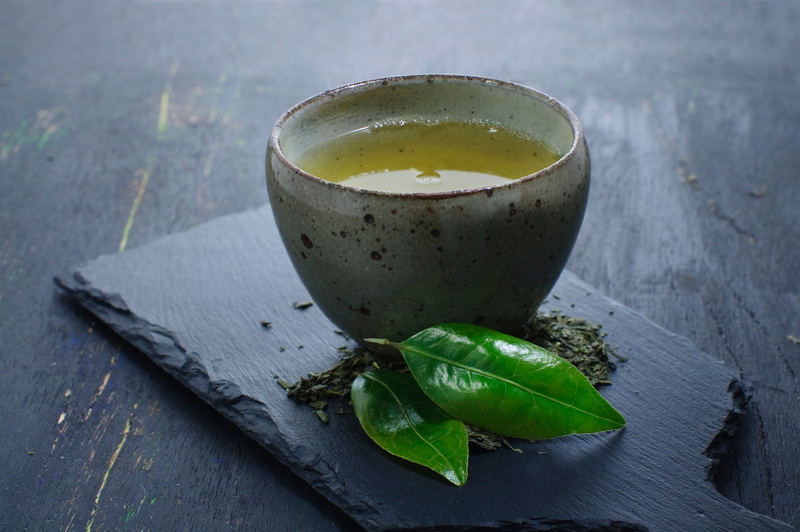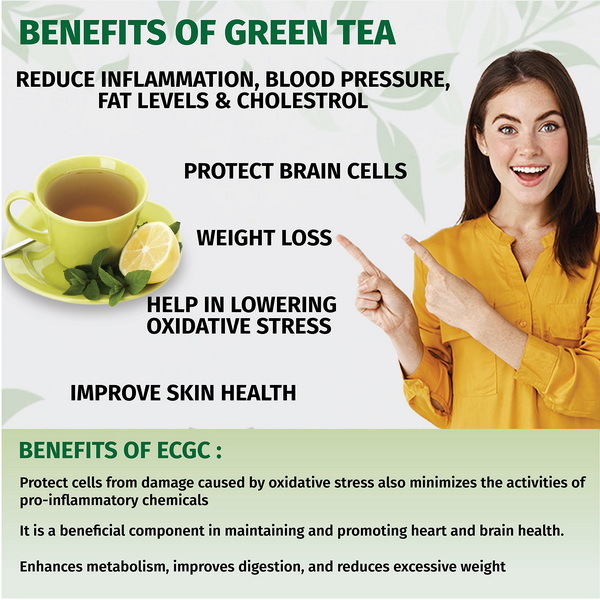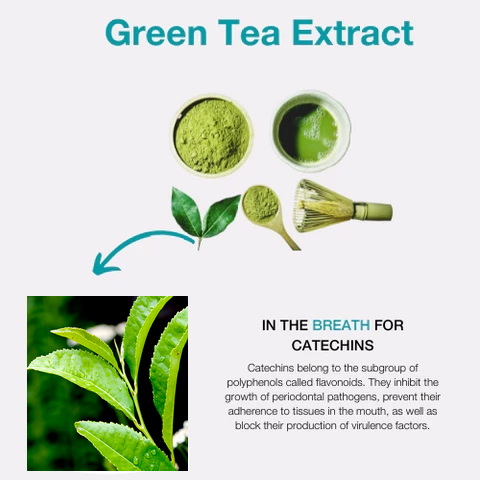Content Menu
● The Composition of Green Tea Extract
>> Polyphenols and Catechins
>> Caffeine
>> Other Compounds
● Health Benefits of Green Tea Extract
>> 1. Antioxidant Properties
>> 2. Weight Management
>> 3. Heart Health
>> 4. Brain Function
>> 5. Cancer Prevention
● How to Use Green Tea Extract
● Potential Side Effects and Precautions
● Green Tea Extract vs. Drinking Green Tea
● How Green Tea Extract is Made
● Choosing a Quality Green Tea Extract Supplement
● Conclusion
● Frequently Asked Questions
>> 1. Is green tea extract safe for everyone?
>> 2. How much green tea extract should I take daily?
>> 3. Can green tea extract help with weight loss?
>> 4. Are there any drug interactions with green tea extract?
>> 5. How long does it take to see benefits from taking green tea extract?
● Citations:
Green tea extract has gained immense popularity in recent years due to its potential health benefits. This concentrated form of green tea is packed with powerful compounds that may contribute to overall wellness. In this comprehensive article, we'll explore the components of green tea extract, its potential benefits, and how to incorporate it into your daily routine.

The Composition of Green Tea Extract
Green tea extract is derived from the leaves of the Camellia sinensis plant, the same plant used to make various types of tea. The extract is a concentrated form of the beneficial compounds found in green tea, primarily polyphenols and catechins[1][2].
Polyphenols and Catechins
The main components of green tea extract are polyphenols, particularly a class of compounds called catechins. The most abundant and well-studied catechin in green tea extract is epigallocatechin gallate (EGCG)[1][3]. Other catechins present in green tea extract include:
- Epigallocatechin (EGC)
- Epicatechin gallate (ECG)
- Epicatechin (EC)
Caffeine
Green tea extract also contains caffeine, although in smaller amounts compared to coffee. The caffeine content can vary depending on the extraction process and the specific product[5].
Other Compounds
In addition to polyphenols and caffeine, green tea extract may contain:
- Amino acids (such as L-theanine)
- Vitamins (including vitamin C and various B vitamins)
- Minerals (like fluoride and manganese)
Health Benefits of Green Tea Extract
The compounds found in green tea extract have been associated with numerous potential health benefits. Let's explore some of the most well-researched effects:
1. Antioxidant Properties
The catechins in green tea extract, especially EGCG, are powerful antioxidants. They help protect cells from damage caused by free radicals, which may reduce the risk of various chronic diseases[1][3].
2. Weight Management
Green tea extract may aid in weight loss and fat burning. Studies suggest that the combination of caffeine and catechins can boost metabolism and increase fat oxidation[5].
3. Heart Health
Regular consumption of green tea extract has been associated with improved cardiovascular health. It may help lower blood pressure, reduce LDL cholesterol levels, and improve overall heart function[1][9].
4. Brain Function
The caffeine and L-theanine in green tea extract may have synergistic effects on brain function, potentially improving mood, alertness, and cognitive performance[5].
5. Cancer Prevention
While more research is needed, some studies suggest that the antioxidants in green tea extract may have protective effects against certain types of cancer[9].
How to Use Green Tea Extract
Green tea extract is available in various forms, including capsules, powders, and liquid extracts. Here are some tips for incorporating it into your routine:
1. Follow the recommended dosage on the product label.
2. Start with a lower dose and gradually increase to assess your tolerance.
3. Take green tea extract with meals to enhance absorption and reduce the risk of stomach upset.
4. If using a powder form, mix it into smoothies, juices, or other beverages.
Potential Side Effects and Precautions
While generally considered safe for most people, green tea extract may cause side effects in some individuals, especially when consumed in high doses. Potential side effects include:
- Stomach upset
- Headaches
- Sleep disturbances (due to caffeine content)
- Increased heart rate and blood pressure
It's important to consult with a healthcare professional before adding green tea extract to your regimen, especially if you have any pre-existing health conditions or are taking medications.

Green Tea Extract vs. Drinking Green Tea
While drinking green tea can provide many of the same benefits as green tea extract, the extract offers a more concentrated dose of beneficial compounds. Here's a comparison:
| Green Tea Extract | Drinking Green Tea |
| Higher concentration of catechins | Lower concentration of catechins |
| More convenient for some people | Provides hydration |
| May have a higher risk of side effects | Generally lower risk of side effects |
| Can be taken in various forms | Limited to beverage form |
How Green Tea Extract is Made
The process of creating green tea extract involves several steps:
1. Harvesting fresh green tea leaves
2. Drying and chopping the leaves
3. Extracting the beneficial compounds using water or alcohol
4. Concentrating the extract through evaporation or spray-drying
5. Standardizing the extract to ensure consistent potency
Choosing a Quality Green Tea Extract Supplement
When selecting a green tea extract supplement, consider the following factors:
1. Look for products standardized to EGCG content
2. Choose supplements that have been third-party tested for purity and potency
3. Check for additional ingredients or fillers
4. Consider the form (capsules, powder, or liquid) that best fits your lifestyle
5. Read customer reviews and research the brand's reputation
Conclusion
Green tea extract is a concentrated source of beneficial compounds, primarily polyphenols and catechins, found in green tea. Its potential health benefits include antioxidant protection, weight management support, improved heart health, and enhanced brain function. While generally safe for most people, it's important to use green tea extract responsibly and consult with a healthcare professional before adding it to your routine.
As research continues to explore the effects of green tea extract, we may discover even more potential benefits and applications for this powerful natural supplement. Whether you choose to drink green tea or take green tea extract supplements, incorporating this ancient remedy into your modern lifestyle may contribute to your overall health and well-being.

Frequently Asked Questions
1. Is green tea extract safe for everyone?
While green tea extract is generally considered safe for most adults, it may not be suitable for everyone. Pregnant or breastfeeding women, people with certain medical conditions, and those taking specific medications should consult with a healthcare professional before using green tea extract supplements.
2. How much green tea extract should I take daily?
The appropriate dosage can vary depending on the specific product and individual factors. Most studies have used doses ranging from 300-800 mg of green tea extract per day. Always follow the recommended dosage on the product label or consult with a healthcare provider for personalized advice.
3. Can green tea extract help with weight loss?
Some studies suggest that green tea extract may support weight loss efforts by boosting metabolism and increasing fat oxidation. However, it's important to note that green tea extract is not a magic solution for weight loss and should be used in conjunction with a healthy diet and regular exercise for best results.
4. Are there any drug interactions with green tea extract?
Yes, green tea extract can interact with certain medications. It may affect the absorption of iron and certain medications, including some antibiotics and blood thinners. Always inform your healthcare provider about any supplements you're taking, including green tea extract.
5. How long does it take to see benefits from taking green tea extract?
The time it takes to experience benefits from green tea extract can vary depending on the individual and the specific health outcome being measured. Some effects, like increased alertness, may be noticeable relatively quickly, while others, such as improvements in heart health markers, may take weeks or months of consistent use to become apparent.
Citations:
[1] https://www.healthline.com/nutrition/10-benefits-of-green-tea-extract
[2] https://pmc.ncbi.nlm.nih.gov/articles/PMC7084675/
[3] https://www.urmc.rochester.edu/encyclopedia/content?contenttypeid=19&contentid=GreenTeaExtract
[4] https://naturallythinking.com/green-tea-extract
[5] https://www.youtube.com/watch?v=kmlcjBJ05Sk
[6] https://www.youtube.com/watch?v=A7tjlpYdUGU
[7] https://www.zhounutrition.com/blogs/the-greatness-files/green-tea-extract-q-a
[8] https://www.nccih.nih.gov/health/green-tea
[9] https://www.mountsinai.org/health-library/herb/green-tea
[10] https://pmc.ncbi.nlm.nih.gov/articles/PMC7600665/
[11] https://www.alamy.com/stock-photo/green-tea-extract.html
[12] https://www.elo.health/articles/green-tea-extract-supplements/






























